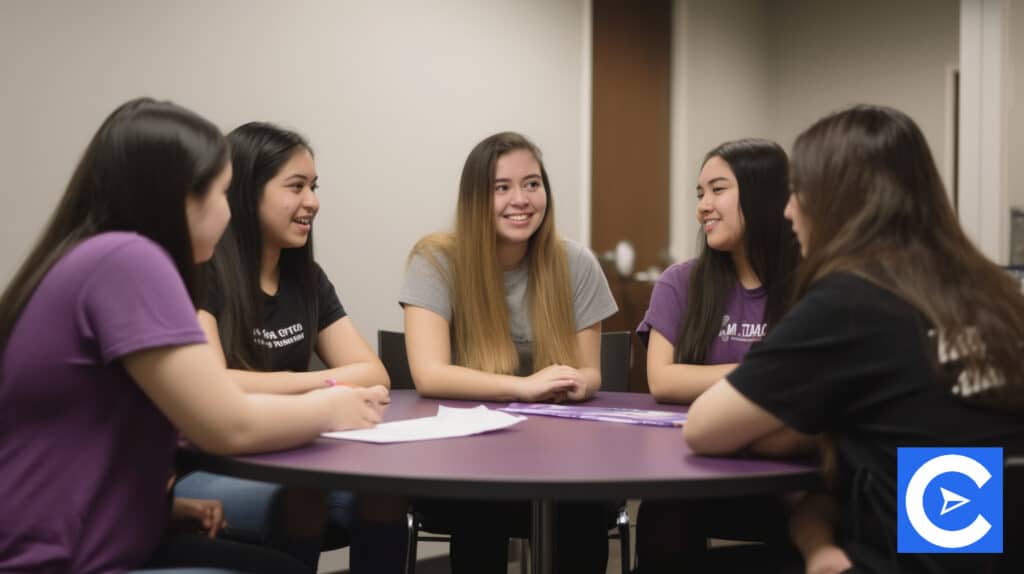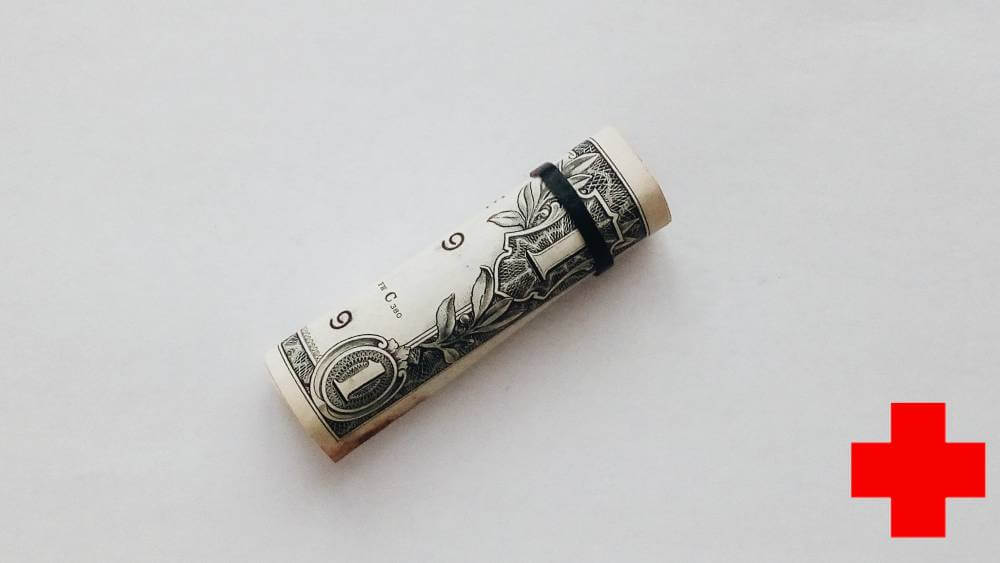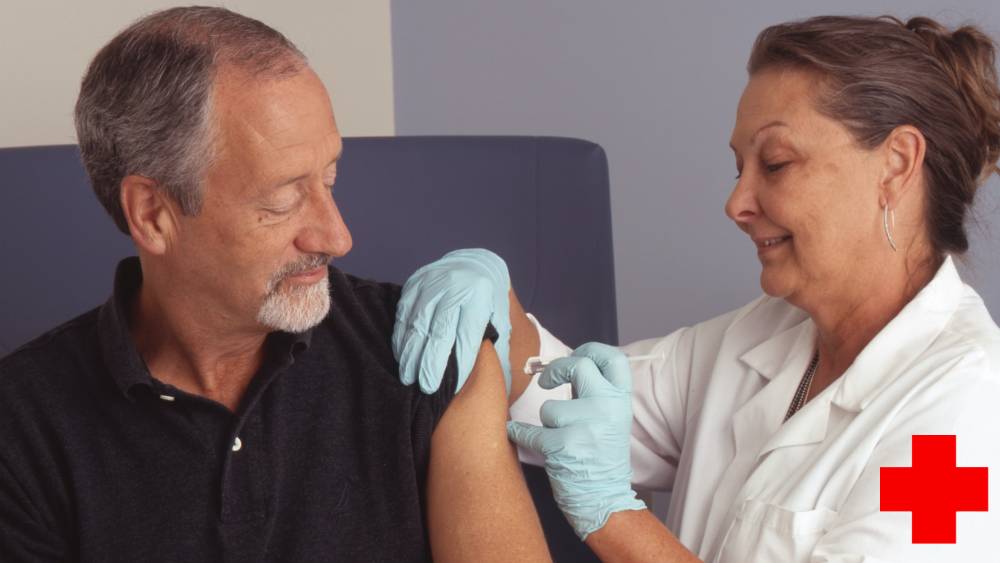Hello, our dear reader!
Welcome to our in-depth guide that outlines the key Nurse Practitioner Interview Questions.
In this article, we’ll take a deep dive into how to prepare for an NP interview, some of the common interview questions you may encounter, and the questions you should ask in an NP interview.
By the time you are done, you’ll be equipped with everything you need to ace a Nurse Practitioner’s Interview.
Here is exactly what we’ll talk about:
- How to Prepare for a Nurse Practitioner Interview
- Common Nurse Practitioner Interview Questions
- Questions you should ask during the interview
So, buckle up, this is going to be an eye-opening session!
How to Prepare for a Nurse Practitioner Interview

Nurse Practitioner is one of the in-demand jobs in the nursing industry.
Hence, to secure a Nurse Practitioner job, you’ll need to thoroughly prepare to answer the interview questions effectively.
And that’s where we come in.
We’ve crafted top NP job interview preparation tips to help you have a smooth interview process.
Review Your Application and Resume
Straight up, you should know what’s in your application and resume from back to back.
Why is this important?
Most of the interviewing questions will revolve around your application and resume.
In fact, your resume will be the basis for questions on how your previous experience aligns with the current position you are seeking.
The interview questions may include your educational background, skill sets, awards and honors, and even community involvement.
For that reason, you must be well-prepared to answer in detail any question about the items you listed on your resume and your application letter.
Go through these two documents with a fine-tooth comb.
Our advice?
Questions about your resume and application should not take you by surprise!
Before we forget, make copies of your resume just in case the interviewing panel needs additional copies.
Review the Job Description?
When seeking a Nurse Practitioner job, there are high chances you’ll apply for different NP positions in different organizations.
The last thing you want to happen is to confuse the job interview you are attending with the other job searches on your list.
To be safe, go through the job description many times.
The key is to understand the NP role and align your experience and expertise to the requirements.
You should be able to describe how your background has prepared you to handle the duties and responsibilities in the specific Nurse Practitioner position you are interviewing for.
Research Common NP Interview Questions
Now that you know the content of your resume and application letter like the back of your hand, it’s time to crawl the web and fish out Nurse Practitioner job interview questions.
This is a defining moment in your preparation.
You should be conversant with as many Nurse Practitioner interview questions as possible.
Some of the questions you may come across include:
- What are your strengths and weaknesses?
- Why do you want to work as a Nurse Practitioner here?
- Why did you become a Nurse Practitioner?
- Tell me about yourself?
- Why should we hire you?
Don’t just scan through the questions.
Read them together with the given responses.
Now, this is important.
Don’t cram the questions and answers word for word.
The key is to have a rough idea of the interview questions.
During the interview, you should tailor your responses to match the questions asked.
Research the Facility
Another important tip is to research the hiring facility.
While you don’t need to memorize everything on the website, you should know the facility’s mission statement and values.
Further, things like what the organization does, the structure, affiliation with other organizations, and recent publications are important.
Do your homework about the organization.
Familiarity with the organization will prove that you are not only interested in talking about yourself but also excited about what they do and would love to be part of their team.
Find Out Who You’re Meeting for the Interview
More often than not, Nurse Practitioner interviews have several phases.
The first stage may involve an interview by the third party like a recruiting agency, followed by a member of the HR team.
The interview may progress to the Human Resource before finally securing an interview with the hiring manager.
Sometimes, the first interview is done over the phone or through zoom.
In these instances, conduct yourself as you would in a face-to-face interview.
Another important thing, whichever stage of the interview you are in, it’s important to maintain professionalism at all times.
Whether you are interviewed by a recruiting agency or the hiring manager, maintain the same level of seriousness.
Dress the Part
Our last Nurse Practitioner interview hack is about dressing for the interview.
You don’t need to buy new attire for the interview, but you must look sharp.
A business suit in a neutral color is your best shot.
The same goes for ladies.
Although they might not go for a suit, conservative clothes are perfect.
Ensure your clothing is clean, well-iron, and fitting.
Additionally, look into your grooming.
Gentlemen should keep their beards short.
Also, keep the nails short and neat.
Furthermore, accessories should be at a minimum and avoid fancy clothes and heavy embroideries.
When it comes to dressing for interviews, modest is the way to go.
Common Nurse Practitioner Interview Questions

Interviews help recruiters establish the job seeker’s experience, skills, and traits.
It’s an opportunity for the hiring team to determine whether the candidate is the right fit for the company.
On the flip side, interviews allow job seekers to glean information about the employer and establish if the facility meets their expectations.
The pivotal part of any interview is the responses job seekers give to the questions asked.
Hence, you have to go above and beyond to make an impression.
To do this, preparation is key.
And so, we’ve gathered typical interview questions for Nurse Practitioners that you are most likely to come across in a Nurse Practitioner interview.
Here are sample interview questions split into three categories: hard, behavioral, and informational Nurse Practitioner interview questions.
Hard Skills Interview Questions for Nurse Practitioners

These questions are geared towards testing your technical abilities and knowledge.
The recruiter will also want to know if you understand Nurse Practitioner roles and responsibilities.
Some of the questions you’ll come across that test your hard skills include:
What is your experience with using electronic health records? Which systems have you used?
EHRs are essential for the efficient operation of a medical facility, clinic, or hospital.
It boosts productivity and improves patient care.
Hence, a Nurse Practitioner should have a healthy working relationship with electronic health record systems.
The hiring manager wants to establish if you’ve embraced EHRs and used it in your past work.
Sample answer
As standard practice in my previous station, all the patient information was recorded in the EHR database to ensure synchronicity and effective collaboration among healthcare team members, improving patient outcomes.
I’ve used an outpatient EHR system in my previous employment to record patients’ medical and treatment histories.
Further, I recorded the patients’ diagnoses and ordered diagnostic tests through the EHR.
I can say that the outpatient EHR system made it easier to monitor patients’ progress.
Overall, it reduced my workload.
Tell me about a clinical emergency you handled in the past?
With this question, the potential employer is trying to establish how you react in a crisis.
Their goal is to establish whether you remain calm under pressure and are a good team player.
Your focus when answering this question is to demonstrate how you handled the emergency safely and effectively.
To respond to this question, use the star method.
STAR stands for Situation, Task, Action, and Results.
Situation refers to giving background information about the scene.
From there, you articulate your role in the situation.
Next, give a detailed description of your actions to salvage the situation.
And finally, give a review of the specific outcome of your efforts.
Here is how you’ll use the star method to answer the question.
Sample answer
As a Nurse Practitioner, I’ve worked in many clinical emergencies.
My most recent experience involved an expected mother who was in labor.
She couldn’t reach the hospital she was scheduled to give birth.
So, we prepped an examination room for her and kept her stable.
We contacted her Doctor, who helped with the delivery before transferring her to the designated facility.
Over the years of handling clinical emergencies, I’ve learned that it’s crucial to remain calm and leverage the team members to manage emergencies effectively.
You are seeing a patient for a routine exam, and suddenly, they start to complain of dizziness
What do you do?
Here the recruiter wants to test your medical skills.
Explain how you’ll handle such a patient.
Sample answer
I will give the patient water and request her to sit down.
From there, I’ll ask her questions like when did she last eat and sleep? Is she on any medication? Does she have any allergies?
I’ll further probe their history to see if they’ve felt dizzy before and what remedy they used.
From her responses, I can make a proper diagnosis.
If you’ve prescribed pain medication to a patient and they still complain of the pain, what would you do to help further?
In this question, the hiring team wants to know the protocol you’ll use to help the patient better manage pain without overmedicating them.
Take your time to convince them of your medical prowess.
Sample answer
One of the most challenging parts of being a Nurse Practitioner is helping patients manage pain.
As a Nurse Practitioner, I can only rely on what the patients tell me about their feelings.
So, I’ll apply my experience and knowledge to establish their pain tolerance and determine ways to help them manage the pain.
Further, I’ll help them feel better by reassuring them and ensuring they are comfortable.
How would you handle a patient who requests medications that you feel are unnecessary?
Self-diagnosis is a common phenomenon in the medical field.
And so, with this question, the interviewing panel wants to establish your prescription process and find out whether you can establish common ground with a demanding client.
Sample answer
I’ll only provide medication once I’ve diagnosed the patient and established their medication needs.
As for their request, I’ll strive to find out why they feel they need that particular medication.
And since it’s unnecessary, I’ll take my time to educate them on their diagnosis and the treatment plan that will work best for their health issue.
Behavioral Interview Questions for Nurse Practitioners

Behavioral interview questions test how you respond to a stressful situation.
The recruiters are interested in establishing how you’ve handled situations in the past.
Questions that you may encounter in this category include:
Tell me about a scenario where you went above and beyond to provide exceptional patient care?
The nature of the healthcare profession is that medical staff make every effort to provide the best patient care.
Here, the hiring manager is trying to find a personal experience where you exhibited this valuable trait.
They want to know how you’ll inspire a culture of well-being and kindness.
Sample answer
I always put my best foot forward with every patient.
My most recent encounter where I went overboard to ensure a positive patient experience was when one of the patients in my previous work was diagnosed with HIV apart from being diabetic.
The patient struggled to accept the news.
He was frustrated and easily irritable.
I used positive reinforcement and encouragement to let him know that’s not the end of life.
When I was done with my work, I went back to talk to the family and motivated them to be more supportive.
I also stayed a few more hours encouraging the patient.
I was able to answer his questions which, to a great extent, cleared his fears.
By the time I was leaving, the family was grateful for my help.
I must say seeing hope in the patient’s eye after my time with the family made my day.
What would you do if you witnessed unethical behavior at the workplace?
It’s a well-known fact that unethical behavior is more or less part and parcel of healthcare providers’ day-to-day life.
So, as the interviewer asks this question, they expect you to acknowledge this negative aspect of healthcare.
You can share an experience you witnessed, and if you haven’t, tell them what you’ll do if you face one.
Sample response
Unethical behavior is a menace to health care.
Fortunately, I’ve never experienced one.
But if I did, I’ll confront the healthcare professional in question and ask them to rectify their behavior.
I’ll try to discuss the underlying issues and see if we can set a goal for a behavior change.
If they are not responsive, I’ll report them to the immediate supervisor.
How would you handle a difficult patient or a family member?
If you have experience as an NP, you’ve definitely encountered an irritable or overly anxious patient, a patient who simply refuses to follow the medical orders or one who doesn’t follow up as instructed.
This Nurse Practitioner interview question wants you to address how you responded to these clients.
Here, the panel is testing your soft skills, particularly communication skills.
How do you approach stubborn patients?
Sample question
I once encountered a patient who refused to follow the prescriptions.
He skipped some days and took the medication when they felt like it.
This meant they were in and out of the facility often.
To help them understand just how much danger he was putting on his health, I took him through the benefits of sticking to the prescription and the side effects of not following the prescription.
I helped him develop an actionable plan to ensure he took his medication as stipulated.
What are some of the most challenging aspects of your job as a Nurse Practitioner?
Long working hours, unpredictable work schedules, and the fast-paced work environment are the top challenges for Nurse Practitioners.
So, when answering this question, don’t try to sugarcoat the fact that NP can be stressful.
Be honest, but then again, wind up the challenge with a positive remark.
Sample answer
The long working hours can sometimes take a toll on even the best and most experienced Nurse Practitioners.
Other times the pressure to deliver during emergencies can be overwhelming.
When I joined the profession, these two aspects took a toll on me.
But, I’m striving toward overcoming the challenges.
Share some highlights of your previous Nurse Practitioner experience?
Sharing the highlights of your Nurse Practitioner career gives potential employers insight into your background work experience.
Sample answer
I previously worked as a Travel Nurse Practitioner in different clinics, practices, health facilities, and community health centers.
I cared for a wide range of patients with different ailments, which equipped me with a broad range of experience.
I also developed a team spirit as in every new facility; I had to work with a new healthcare team.
Informational Interview Questions for Nurse Practitioners

Informational Nurse Practitioner interview questions help the potential employer to gather information about you, your background, and your professional plans.
Tell me about yourself?
You’ll encounter this question or its variation in every interview you attend.
So, be prepared beforehand.
The employer wants to know about you as a Nurse Practitioner, not your life history.
Create an introductory pitch that summarizes, who you are, what you do, your achievements, experiences, and passion.
Sample answer
I’m Mary Jones.
I’ve worked as Travel Nurse Practitioner for the past five years.
My most recent station was a remote community clinic, where I worked for three months.
In this setup, I was the primary care provider, handling patients from across the lifespan.
I’ve worked in different setups and cared for various patients.
I’ve gained immense experience, which I believe will come in handy in this position.
What makes you a good fit for this Nurse Practitioner position?
This question seeks to determine the value you are bringing to the table.
It could be your years of experience, expertise in a particular specialty area, or skill sets.
Whichever angle you choose, link it to the job description.
Sample answer
I’ve worked in a fast-paced environment with demanding working hours.
I’m well prepared to handle the demands of working for a huge facility like this one.
Further, I’ve years of experience in general and emergency patient care.
Additionally, I’m a great team player who always liaises with other team members to ensure the best patient outcome.
What are some of your weaknesses as a Nurse Practitioner?
The recruiter wants to know if you know your weaknesses and what you are doing to overcome them.
So, instead of a humble brag, which no one wants to hear about, be honest about your challenges as an NP.
Sample answer
I’ve always struggled with filling the reports.
Often, I find myself postponing the task until the last minute.
So, to help manage this weakness, I set a strict rule to fill the reports during the day so they don’t pile up.
As I wind up my shift, I fill whatever is remaining.
This new strategy has helped me reduce working until late hours.
Why do you want to work here?
While the compensation and benefits may be the main reasons you want to work with the facility, please don’t mention them.
Instead, focus on the other positive aspects of the organization.
Sample answer
I previously worked in the emergency department and thoroughly enjoyed the experience and exposure I got by attending to patients with different medical needs.
Since your facility has well-equipped emergency rooms and a supportive department, I would love to be part of this team.
The fact that you have mentorship opportunities for new Nurse Practitioners is a bonus.
Questions You Should Ask

When talking about an interview, we mostly assume it’s one way.
It’s the interviewer who is asking the job seeker questions.
While that makes a huge part of the interview, you should also interview the organization.
This way, you can gather important information about the organization’s policies, benefits package, and culture.
If that’s the case, you may wonder what exactly you should ask the interviewing panel.
Here is a straightforward answer.
- Who is my employer?
While this may seem like an irrelevant question, it isn’t.
Sometimes, you may be applying for a Nurse Practitioner position in a hospital, but the employer is a private group.
Knowing the employer from the get-go makes everything clear from the beginning of your contract.
- How does this facility support new Nurse Practitioners?
This is one of the important questions you should ask during the interview process.
Your goal here is to establish if there’s room for career advancement and growth.
You’ll want to establish if there are continuing education opportunities.
Also, ask about the mentorship the facility provides to new Nurse Practitioners.
Additionally, inquire about the orientation.
What does it look like?
And even more important, who will orient you? A fellow Nurse Practitioner or a Physician?
- What are the terms of employment if I get this position?
As with any other formal agreement, you want to have a rough idea of the terms of employment before you reach the employment contract signing stage.
A snippet into salary expectations, benefits and packages, and working conditions will help you decide if the Nurse Practitioner job is the right fit.
How would you describe the culture of this organization?
A positive work environment creates a conducive atmosphere for the best performance.
It positively impacts performance and drives engagement.
So, when asking this question, your goal is to establish whether working for the facility will be rewarding in the long run.
- Why did the last person in this position leave?
There are a few reasonable reasons why one may leave employment.
Perhaps they got a better opportunity elsewhere.
It could be they ventured into independent practice.
In the worst-case scenario, they might have been fired because of performance issues or unethical behavior.
Knowing this information will help you understand what is permissible and what will get you fired in a heartbeat.
You’ll also better understand the values and culture of the organization.
- How would you describe the life balance here?
Fast-paced and busy are two adjectives that describe working in a healthcare setting.
Depending on the facility, you may find that there’s no flexibility and hence work-life balance is unheard of.
It’s important to inquire about the shifts.
Will you work 24 hours, 12 hours, or 8 hours shifts?
It could also be an 8-5 job.
Will you get off days, and if yes, how many?
Will you be required to work over the weekend?
From the hiring manager’s response, you’ll establish if the working schedule is something you can work with.
This list of questions is a good starting point, but as you progress through the different interview stages, you’ll pick a few areas that you can further probe.
Additionally, you can get questions to ask from the facility’s website.
Remember, if you have multiple interviews, you can ask the questions bit by bit as you progress through the interview stages.
You don’t have to ask everything in one go.
Conclusion

We’ve finally come to an end.
We’ve covered key areas in Nurse Practitioner interview questions that you should focus on when preparing for an NP interview.
We’ve also highlighted top tips to adequately prepare and ace your interviews.
So, what are you waiting for?
Apply for those Nurse Practitioner jobs because you have everything it takes to secure the position.
Best of luck!
FAQs

How do I prepare for a Nurse Practitioner interview?
– Review the job description
– Go through your application and resume
– Research the facility to understand its vision, values, and mission
– Research common Nurse Practitioner interview questions
– Find who you’ll be meeting for the interview and how many stages of the interview are there
– Dress formally for the interview
How do you answer “tell me about yourself?” in an NP interview?
Talk about your Nurse Practitioner experience, educational background, achievements, skills, passion, and values. The interviewer is not interested in your life story. So, make it relevant and only share what resonates with the position you are interviewing for. Because this is a common question, write a pitch and rehearse.
What questions are asked in a Nurse Practitioner interview?
The questions asked in an NP interview are diverse. They cover hard and soft skills. Hard skill questions test candidates on their technical knowledge and medical skills. Soft skill questions focus on discovering the NP’s behavior, beliefs, work ethic, and overall attitude toward the profession.
What questions should I ask at an NP interview?
The questions you should ask help you establish whether the company is a good fit for you. Some of the questions include:
– Who is my employer?
– Who will be my supervisor?
– How does this facility support new Nurse Practitioners?
– How would you describe the life balance here?
What to wear to a Nurse Practitioner interview?
Indeed breaks down the acceptable dress code for nursing interviews as follows:
– A suit: A suit shows professionalism
– You’ll feel more put together.
– Dress slacks: An official top paired with a dress slack in solid color is perfect.
– Professional shoes: Low-heeled shoes are always recommended.
Where do you see yourself in the next five to ten years?
This question seeks to establish if your long-term goals align with the organization’s visions. Share your ambitions and how you want to grow as an NP. This may include pursuing DNP or a specialty area, earning a leadership position in the organization, or mentoring new Nurse Practitioners.








